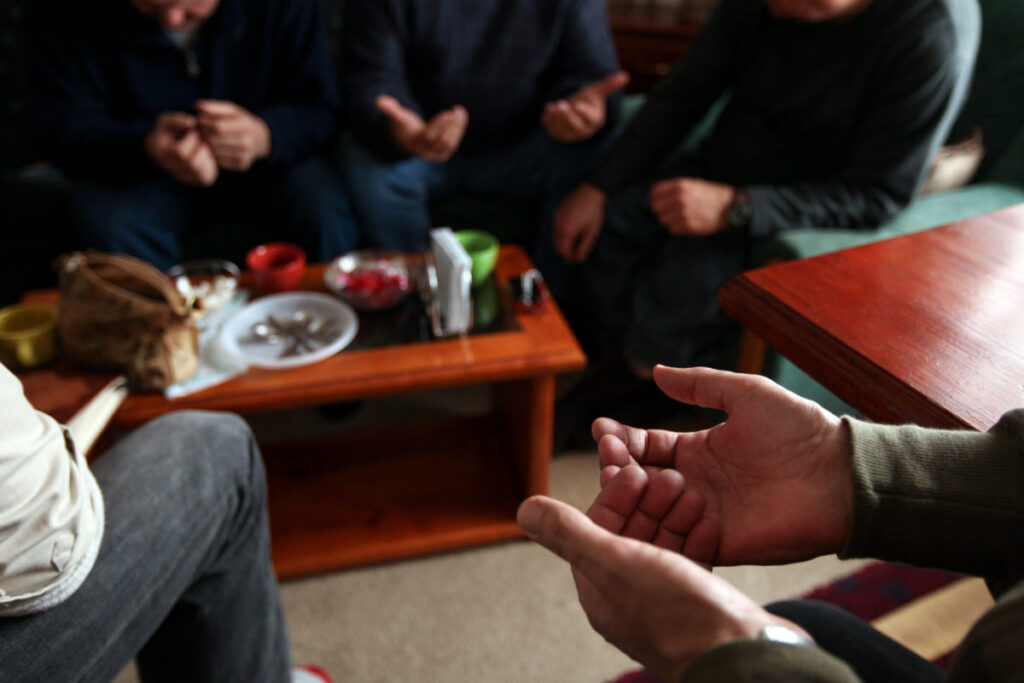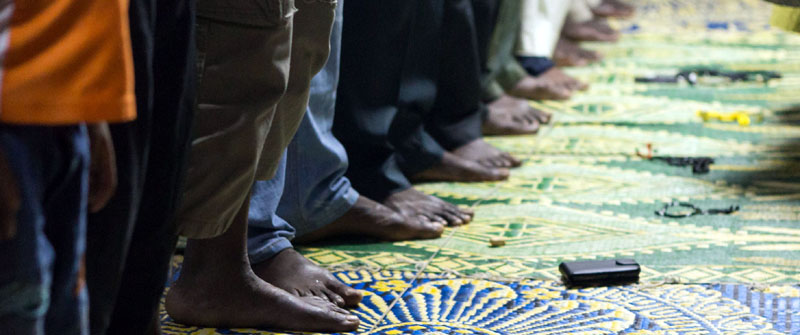
WASHINGTON (BP) – Despite her resolve not to cry, tears found persecuted Iranian Christian Sima Arshadi as she briefly shared her story of resettlement in the U.S.
More than a decade ago, Arshadi fled Iran with her younger son after officials raided her home, where she hosted an illegal church, and arrested her older son. Now a U.S. citizen, she is one of 2,086 Christians accepted into the U.S. from Iran in 2016. But by 2022, the number of Iranian Christian refugees accepted here was down to 112, a drop of 95 percent.
Arshadi hasn’t seen her oldest son in 11 years, and doubts he’ll be able to find refuge here.
She was a panelist Sept. 20 as World Relief and Open Doors U.S. released their 2023 report on persecuted Christians and the U.S. refugee resettlement and asylum process. She spoke alongside Ethics & Religious Liberty President Brent Leatherwood and others in a Capitol Hill briefing attended by congressional staffers.
In “Closed Doors,” World Relief and Open Doors U.S. report that 1 in 7 Christians worldwide suffer persecution or discrimination. The numbers coincide with a 70 percent decrease since 2016 in the number of Christians refugees resettled in the U.S. from the top 50 countries persecuting Christians.
“The United States has a long history of welcoming persecuted people, including persecuted religious minorities like myself,” Arshadi said. “Today I’m asking you, as you stand in the house of the most powerful country on earth, to continue to generously welcome refugees and continue America’s long tradition of being a haven for those longing to breathe free.”
More than 360 million Christians face high levels of persecution and discrimination globally. By the end of last year, an estimated 108 million people had been forcibly displaced globally. The U.S. resettled 28,118 Christian refugees in 2015, a number that dropped to 9,528 in 2022. In 2020, at its lowest point in the study period, only 5,390 persecuted Christians were accepted here.
“Not every displaced person is persecuted on account of their religion,” the report reads, “but these numbers certainly are related. Historically – at least in our best moments – the United States has offered refuge to those fleeing religious persecution, consistent with a commitment to religious freedom that is enshrined within the first clause of the first amendment to our Constitution.”
As the U.S. struggles with immigration policy, Leatherwood presented Christians and in particular Southern Baptists as ready partners in helping those fleeing persecution find refuge here.
“I’m coming to you from churches that are theologically conservative, and they see that work is needed here,” he said. “And at a minimum, we must maintain these areas of bipartisan cooperation that we’ve had, and we need to urge them to do more. My message to policy makers is you have the support to do the right thing here, and they need to do it.”
Overlooking Christians would remove the lion’s share of people who want to be engaged in the work, Leatherwood said, referencing 2022 Lifeway Research findings that one third of evangelicals are engaged in ministry to refugees.
“Helping refugees here, helping those who are fleeing persecution, is a lived reality for a number of our churches, particularly in Baptist life,” Leatherwood said. “I myself in middle Tennessee have helped a family from Afghanistan as they’ve resettled here, and just helped them find their bearings in our community.”
Matthew Soerens, World Relief vice president of policy and advocacy, said the report is directed to lawmakers as well as the church.
“Our primary hope with this briefing and this report is that we can remind the American people and especially the American church, as well as our lawmakers, that the issues of religious persecution and refugee and asylum policies are actually closely connected,” Soerens said. “And if we’re going to be advocates for international religious freedom, which I hope we all are, we also should be strong supporters for robust refugee settlement and asylum processes.”
The report encourages Christians to support persecuted Christians through prayer and advocacy, promoting a robust U.S. refugee resettlement ceiling and decrying barriers that prevent persecuted Christians from finding asylum here.
The full report if available here. Arshadi’s story is told on page 5 of the report, under the pseudonym Mana, written when she still feared for her safety.
–30–





















